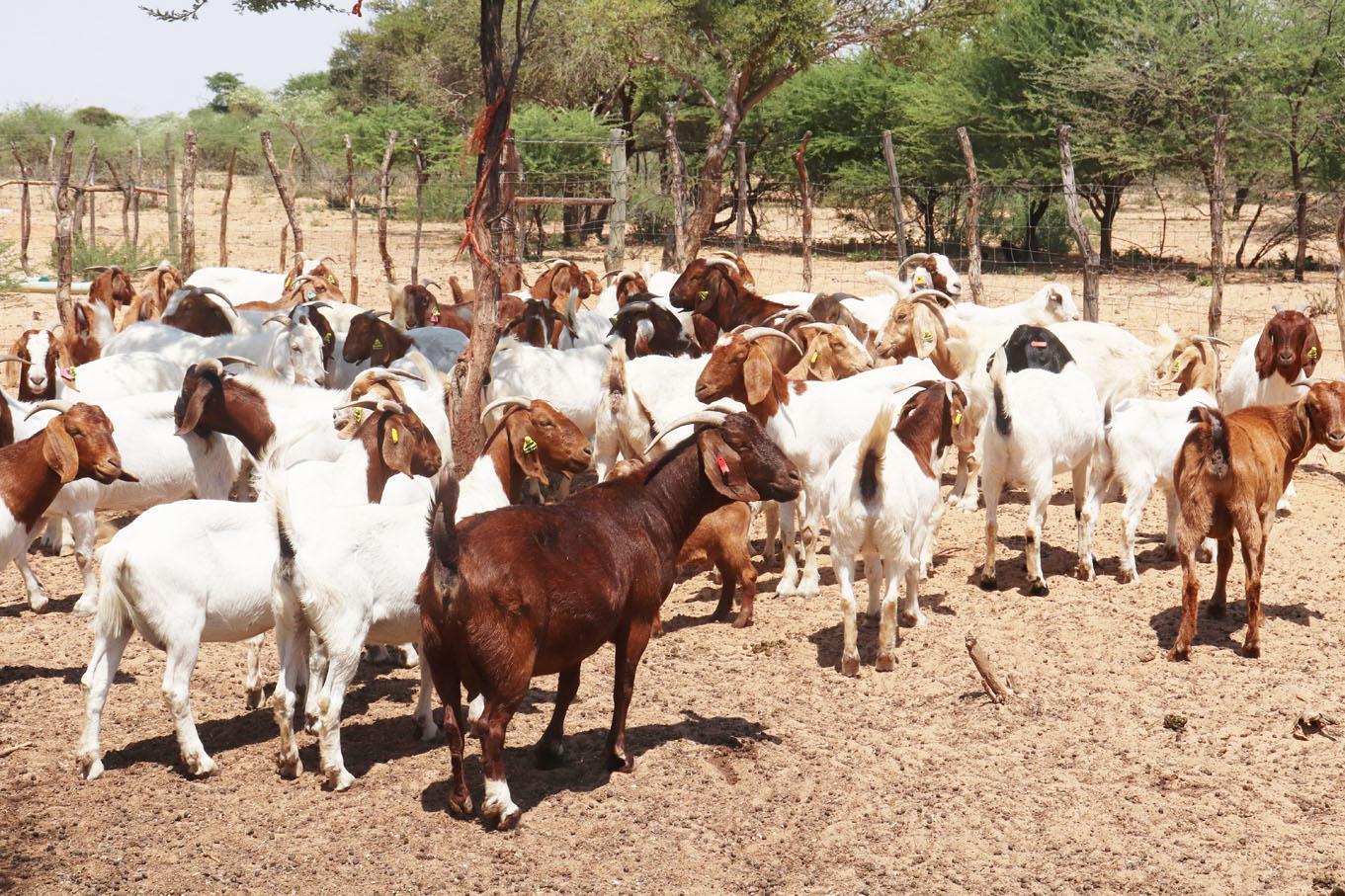Africa-Press – Botswana. For Mr Bonang Mafa, small stock was not just a way of life, it was a painful reminder of hunger and despair.
Growing up in Makobo, Mr Mafa recalls a childhood going to school with torn shoes and improper uniform, with livestock roaming the land but only being slaughtered in times of extreme necessity like funerals.
This harsh reality fueled a deep-seated resentment towards farming that would, in time, transform into a burning desire for success.
Mr Mafa, with a sizeable herd of Kalahari Red and Boer Goats, is testament to the potential for success in small stock farming in Botswana.
With an impressive number of goats, Mr Mafa embodies the growing optimism with the Botswana’s small stock farming community. He believes that the industry has tremendous potential, citing the lucrative markets for goat and sheep meat in Botswana and outside, including the Middle East as evidence.
“If we work together and maximise our resources, we can create a thriving industry in Botswana,” says Mr Mafa.
“I grew up hating farming because we would sleep on empty stomach and not having proper school uniform when we had cattle and goats only to be slaughtered when a problem like death had arisen,” recalls Mr Mafa.
As his journey continues, a change of scenery and new experiences transformed Mr Mafa’s perspectives on small stock farming.
Little did he know that his career as a pharmacist, would take him to the heartland of small stock farming in Botswana – Ghanzi.
It was here that Mr Mafa’s disdain for farming would be transformed into a new found appreciation for the industry, as he came to understand the potential and value of small stock farming.
“My eyes were opened to the wonders of this industry,” he recalls. The scene at Ghanzi revealed a side of small stock farming that Mr Mafa had never envisaged.
Mr Mafa’s perspectives of small stock farming changed as he encouraged a level of success and luxury that he never thought possible. “I saw livestock farmers living in five-bedroom mansions surrounded by lush forest, with their own private airstrips,” he further recalls.
It was here, in the midst of the seemingly impenetrable Kalahari Desert, that Mr Mafa realised the potential of farming to not only sustain, but also elevate one’ s quality of life.Today, Mr Mafa sees small stock farming as a serious venture not just a hobby. With challenges like drought and climate change, he believes that it is about diversifying the herd, understanding the market, and keeping fingers on the pulse of the industry.
“This is not a sector for the faint-hearted. You need to be tough, smart, and adaptive to survive and thrive,” Mr Mafa said.
From a pivotal moment of impressive number, Mr Mafa has become a success story in his own right, defying the odds. His journey is an inspiring one as demonstrated by his actions.
Mr Mafa has established himself as a prominent farmer of the Kalahari Red and Boer Goat breeds, two breeds that are well-suited to the arid conditions of the Kalahari Desert.
“These breeds are tough and resilient, just like Batswana. They are doing exceptionally well in our area, despite the challenges we face,” he added.
Mr Mafa’s dominance at the Northern Trade Fair was undeniable, leaving him standing proud as the sole small stock farmer still exhibiting at the fair.
His presence at the fair was commanding that by the end of the event, other farmers had quickly slipped away, leaving him as the only small stock exhibitor still standing with his well- fed, healthy animals stealing the show.
It seemed clear that Mr Mafa was not just a participant, but a force to be reckoned with in the industry, already stirring up feelings of competition and intimidation among his fellow farmers.
Mr Mafa has demonstrated a remarkable talent for small stock farming in Botswana, surpassing many people’s expectations and establishing himself as a prominent figure in the industry.
It is inspiring to see how dedication, hard work, and passion can lead to success, regardless of one’s background or starting point.
For More News And Analysis About Botswana Follow Africa-Press






